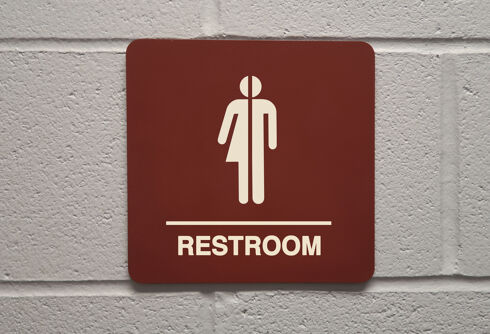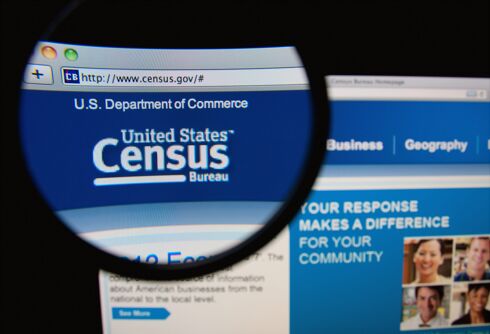SALT LAKE CITY — A Utah lawmaker hopes residents can soon donate to the state’s fight against gay marriage by checking a box on a tax form.
Republican Rep. Merrill Nelson of Grantsville has proposed a bill that would give residents the option of donating a portion of their income-tax refund to a “Marriage Defense Fund.” The tax form already allows donations for nine other groups, including a homeless trust fund and one for organ transplants.

Nelson said the option is meant to placate proponents of same-sex marriage who complain the state is wasting money appealing a federal decision striking down Utah’s gay marriage ban.
“I see it as a peacekeeping measure,” Nelson told The Salt Lake Tribune. He is an attorney for Kirton McConkie, which represents The Church of Jesus Christ of Latter-day Saints.
Never Miss a Beat
Subscribe to our newsletter to stay ahead of the latest LGBTQ+ political news and insights.
Brandie Balken of the gay rights group Equality Utah criticized the bill, saying it would create more division among Utah residents.
The measure is the latest in the battle over the state’s same-sex marriage ban approved by two-thirds of Utah voters in 2004 but overturned by a federal judge in late December. More than 1,000 gay and lesbian couples then married, until the U.S. Supreme Court granted the state an emergency stay Jan. 6, halting the weddings.
The Denver-based 10th U.S. Circuit Court of Ap peals is reviewing the case, with a ruling expected in a few months.
Gov. Gary Herbert ordered state agencies to freeze recognition of same-sex marriages, while the federal government has said they’ll recognize the marriages.
If Nelson’s measure passes, the tax refund contributions would come on taxes filed in 2015.
Article continues below
The nine causes that people already can contribute refund money to using their Utah state tax form include youth organizations, the homeless, wildlife, pets, organ transplants, schools and even the “canine body armor account.”
Any cause get can get a space on the tax form if the Legislature approves it, said Utah Tax Commission Charlie Roberts. Funds are removed if they receive less than $30,000 for three consecutive years, he said.
This material may not be published, broadcast, rewritten, or redistributed.













